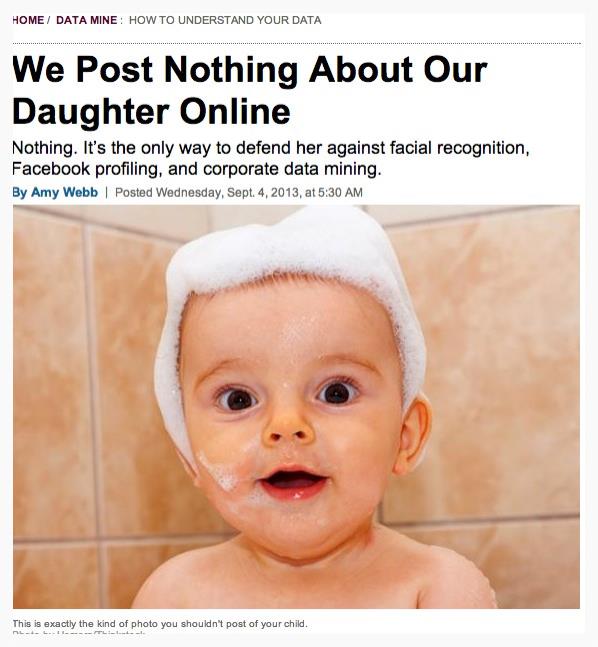UPDATE: Protecting Brand Image or Gaming the System? Consumer 'Gag' Contracts in an Age of Crowdsourced Ratings and Reviews by Lucille M. Ponte
The growing power of reputation is indisputable. As society becomes more dispersed –geographically and spatially (expanding to online spaces) – we increasingly deal with others we do not know well, or sometimes know at all. In order to facilitate these dealings and build the requisite trust necessary for e-commerce and other social, economic and political interactions, that uncertainty between strangers must be addressed. It is more than authentication of identity, it’s “I don’t want to know who you are so much as I want to know how I should treat you, and whether I should trust you.”
In these relationships information about individuals, organizations and institutions that is available online becomes extremely important.
The various roles and resonances of reputation are being played out very publicly in the case of KlearGear.com—a dismal tale of poor customer service, faux consumer advocacy, and the power of erroneous credit reports making life miserable for consumers.
Recently news sites and bloggers have been buzzing about KlearGear’s treatment of customer Jen Palmer. Ms. Palmer’s partner ordered Christmas presents for her from KlearGear.com in 2008. Though paid for, the gifts never arrived, and despite multiple efforts she was unable to contact anyone at KlearGear to resolve the problem. Eventually PayPal cancelled the transaction and Ms. Palmer expressed her frustration on for-profit consumer complaint site RipoffReport.com.
Three years later the Palmers were contacted by KlearGear.com demanding that the negative comments from RipoffReport.com be removed within 72 hours, or face a $3,500 “fine”. Failure to pay the “fine” would be reported to credit bureaus and have a negative impact on their credit rating.
KlearGear.com cited a non-disparagement clause in their Terms of Sales providing that
In an effort to ensure fair and honest public feedback, and to prevent the publishing of libelous content in any form, your acceptance of this sales contract prohibits you from taking any action that negatively impacts kleargear.com, its reputation, products, services, management or employees.
When Ms. Palmer attempted to take down her comment, she says she was notified that RipoffReport would only allow her to do so if she paid a $2,000 fee (!). Subsequently KlearGear.com has attempted to collect the $3,500 fine and followed through on the threat to report it as a delinquent account to credit bureaus. Palmer’s attempts to challenge the report have been unsuccessful and as of this writing, it remains on her record.
Reputation fallout
As someone who has taught contract law, I can’t help but observe that from a purely contract standpoint, it is certainly arguable that KlearGear has no claim here. Since the order was never fulfilled and the payment was refunded there would seem to be no contract, and thus no term that could be enforced.
Even more egregious, as TechDirt found, it appears that the clause KlearGear cited wasn’t even part of the Terms at the time the Palmer order was placed!
Reputation is at the heart of this case:
KlearGear: KlearGear’s recognition of the importance of branding and reputation is evident through their inclusion of the non-disparagement clause. Whether such a clause is or should be enforceable is debatable, but at the very least its inclusion signals an awareness of the importance of reputation management.
RipoffReport.com: Another acknowledgement of the importance of reputation, as well as an exploitative attempt to profit from it, is evident in RipoffReport.com’s refusal to remove the post in question without payment a $2,000 fee. RipoffReport’s own Terms of Use claim that in order to create a complete record, posts on RipoffReport will not be removed. This statement is clearly at odds with their attempt to profit from the Palmer’s alarm over the threats from KlearGear. Legitimate consumer protection sites are predicated on mobilizing the power of reputation in order to protect consumers and empower consumers to protect themselves by providing access to information with which to make educated decisions, not extortion.
Credit Reporting Agencies: Credit bureaus and reports are, of course, a long-standing use of reputation. Various organizations contribute input their financial transactions with individual consumers and their performance obligations during those transactions. This information is collected in a central database and this amalgamated information can be consulted in order to assess the credit-worthiness of an individual consumer. Credit reports can be a double edged sword – while they nominally provide an important resource, they may also (as in the Palmer case) report and perpetuating inaccurate information. Palmer asserts that the negative credit report resulting from this incident still stands and has resulted in the denial of loans.
BEST PRACTICES SIDEBAR: All individuals should periodically review their credit report for inaccuracies and errors. The Office of Consumer Affairs has information about how to do so.
Reputation: the double-edged sword
Ironically, in their attempt to guard against negative reviews and reputation damage, KlearGear has managed to attract dramatically more negative attention than Ms. Palmer’s original RipoffReport post ever could have. The attempt to enforce the Terms of Sale clause drew attention, and then those investigating the report discovered that Ms. Palmer’s original claim was true – that it was impossible to contact anyone from KlearGear. Reports have also emerged calling attention to KlearGear improperly advertising TRUSTe and BBB certifications that they do not hold. KlearGear’s negative Better Business Bureau record, the debate over whether the extortionate clause should be part of a contract (and whether it was part of an actual contract between the Palmers and KlearGear) create even more negative attention and reputation damage to the company.
Reputation is a powerful force in our modern culture—exceedingly influential and extraordinarily vulnerable.
UPDATE: as of September 19 KlearGear.com has gone into “social media lockdown”, deleting its Facebook presence and locking its Twitter account, and RipoffReport is defending its practice of refusing to remove reports at authors’ request and $2,000 “VIP Arbitration” charge.
UPDATE 25 November 2013: Public Citizen is representing the Palmers, and has now sent Kleargear a demand letter requesting (1) that they remove the erroneous credit bureau notice; (2) that they pay $75000 in damages for the effects of the notice; and (3) that they commit to no longer using the non-disparagement clause against clients. Will be interesting to see what Kleargear's response is!
UPDATE 21 May 2014: Despite judgement against them, and despite a clause in the Kleargear ToU that explicitly invokes the laws of the State of Michigan, Kleargear's parent company is now arguing (publicly, but not yet in court) that since they are resident in France they were not served properly and thus the judgement does not apply. You have to wonder how much further they'll go to avoid taking responsibility for their actions...
UPDATE June 2014: Despite their posturing about not being served properly, Kleargear did not raise any formal objections, and accordingly a default judgement has been issued in favour of the Palmers in the amount of $306,750.00









